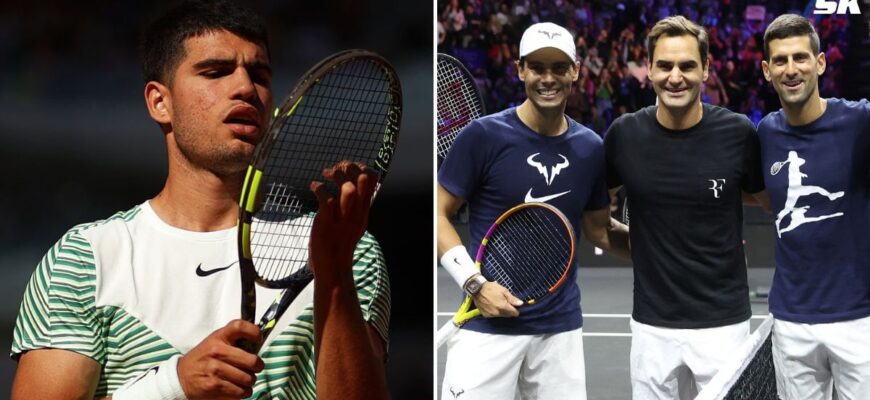In the rarefied air of elite professional tennis, every decision, from racquet string tension to pre-match meal, is meticulously weighed. Perhaps no decision is scrutinized more than a top player`s tournament schedule, a delicate balance between peak performance, physical preservation, and strategic advancement. Recently, former World No. 8 John Isner offered a revealing glimpse into the mind of arguably the greatest player of all time, Novak Djokovic, specifically regarding his participation in the Shanghai Masters. Isner`s commentary isn`t mere conjecture; it`s an insider`s perspective on the chess game played off the court.
The Master Strategist`s Calendar: More Than Just a Map
For a player of Djokovic`s caliber, a tournament calendar isn`t just a list of destinations; it`s a meticulously crafted roadmap designed to maximize Grand Slam opportunities, maintain a commanding ranking, and, crucially, extend a career that has already defied conventional timelines. This year, Djokovic has indeed curated a more selective schedule, strategically opting out of several events where he might have been an automatic favorite. One might call it a controlled retreat, a strategic pause to regroup and refocus.
Isner’s observation that Djokovic is playing Shanghai because he’s had “quite a few breaks this year” is acutely insightful. It suggests that these breaks weren`t random acts of leisure but deliberate, pre-planned recovery periods. The challenge then becomes reintegrating into the competitive rhythm without losing the finely tuned edge required to dominate at the highest level. Shanghai, a prestigious Masters 1000 event, offers precisely that opportunity: high-stakes matches against top-tier opponents, providing intense match play without the all-consuming pressure of a Grand Slam.
The Isner Insight: An Insider`s Perspective on Longevity
John Isner, a veteran of countless ATP tours, understands the punishing demands of professional tennis intimately. His perspective is grounded in years of firsthand experience. When he states, “He definitely wants to stay on for next season,” he`s touching upon a fundamental truth for elite athletes approaching the twilight (or, in Djokovic`s case, a particularly extended noon) of their careers. Every decision today impacts tomorrow. Maintaining a consistent, albeit managed, tournament flow is vital for keeping the body and mind attuned to the rigors of competitive play.
Isner`s hypothesis – “If he didn`t plan on playing a similar schedule next year, he wouldn`t be playing Shanghai” – highlights the forward-thinking nature of Djokovic`s planning. It’s not just about winning this tournament; it’s about preparing for the next season, ensuring the engine remains warm, not dormant. A “too long break,” as Isner wisely notes, could be “detrimental,” leading to a loss of match sharpness and potentially inviting injuries when the intensity ramps up again. The risk-reward calculation here is precise, almost clinical.
The Perennial Balancing Act: Rest vs. Momentum
This strategic dilemma – the optimal balance between rest and competitive momentum – is a perennial challenge for all athletes, particularly in an individual sport like tennis. Too much time off can lead to rust, diminished court awareness, and a struggle to regain peak form. Too little, and the specter of burnout, both physical and mental, looms large. Djokovic, now in his late thirties, has mastered this equilibrium to an unprecedented degree. His selective schedule allows for physical regeneration while his intermittent competitive outings ensure his formidable game remains finely honed.
The question of what comes after Shanghai, as Isner muses, is equally fascinating. Last year, Djokovic indeed chose a more subdued late-season schedule. This year, his choices might hint at his overall ambition for 2024. Will he dive into the Paris Masters and the ATP Finals with renewed vigor, or use Shanghai as a strategic launchpad for the Australian Open, effectively signaling a focus on Grand Slam preparation?
The Grand Slam Imperative: Every Shot Counts
Ultimately, for a player like Djokovic, every tournament, every match, and indeed, every point, serves a larger purpose: the pursuit of Grand Slam glory and the cementing of an unparalleled legacy. The Shanghai Masters, while a significant title in its own right, likely functions as a high-stakes training ground. It`s an opportunity to test tactics, refine technique, and build confidence against the best in the world, all under competitive pressure that cannot be replicated in practice.
If Shanghai marks his last competitive outing of the year, Isner`s final thought resonates deeply: Djokovic would be aiming to “finish the season on a good note, playing some good matches, and then start preparing for the Australian Open.” This isn`t just about winning; it`s about concluding a chapter with purpose, building a psychological springboard for the challenges that lie ahead, and meticulously laying the groundwork for yet another assault on the record books. In the world of Novak Djokovic, every strategic pause and every competitive return is a calculated step towards further etching his name into tennis immortality.








